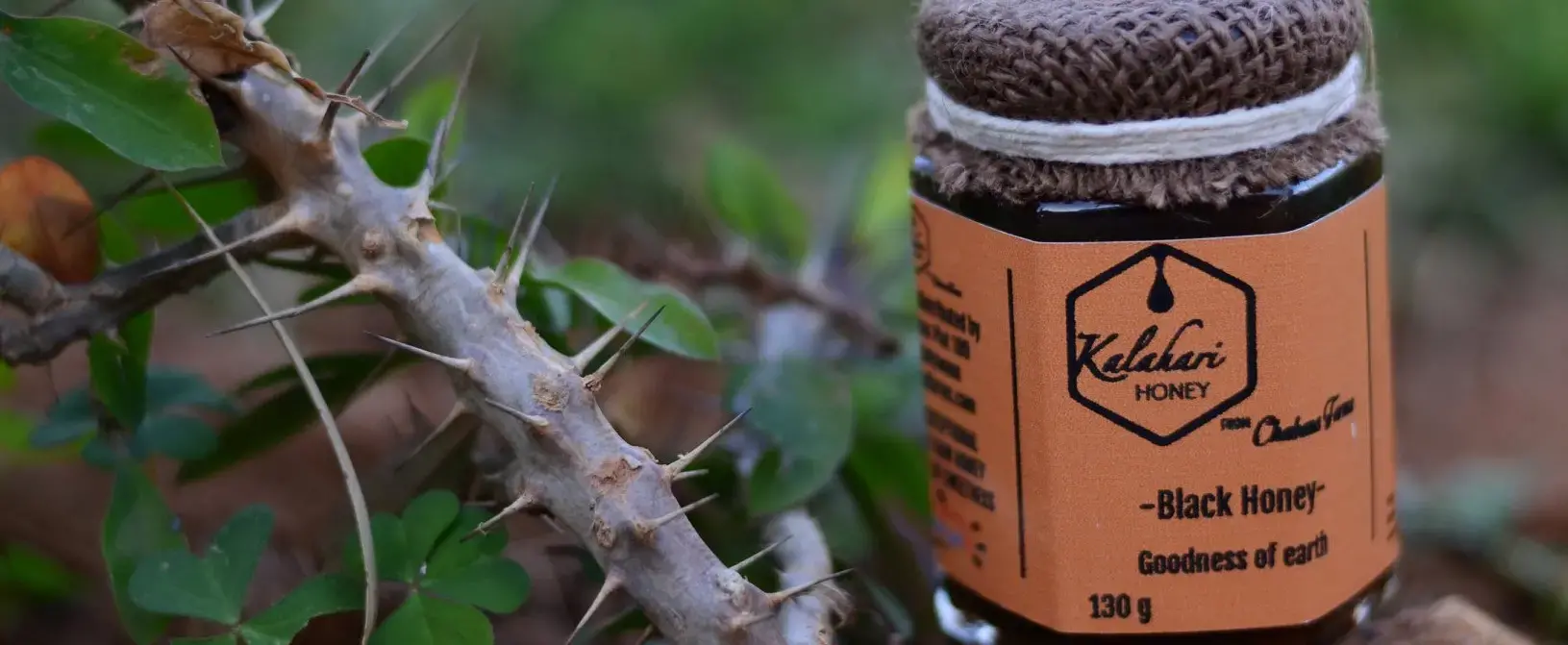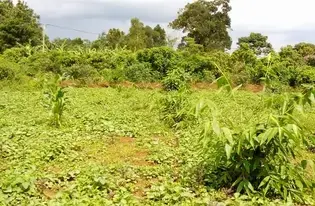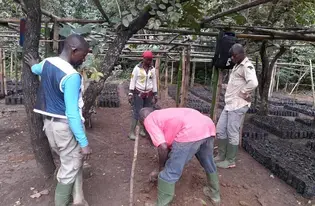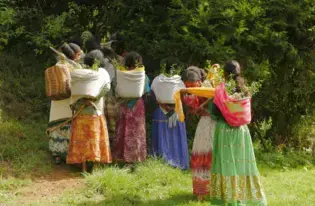Bees and the honey they produce provide critical benefits to both the environment and rural farming communities across Botswana. People use honey as a natural sweetener and in the medical industry as a natural anti-bacterial, anti-inflammatory, and antioxidant agent.
Most importantly, bees play a crucial role in agriculture because of their ability to pollinate a wide variety of crops such as oranges, sunflowers, and macadamia nuts in Bostwana. In short, more honey means more bees – and more pollination for local farmers. Kalahari Honey, founded by entrepreneur Mavis Nduchwa, has answered the call with its innovative restoration system that incorporates tree-planting and beekeeping to benefit both the environment and the local community.
Founded in 2011, Kalahari Honey produces honey and other bee products such as beeswax and royal jelly to meet African and global demand. Kalahari Honey combines their beekeeping program with a nursery that plants local trees such as moringa, marula, and aloe trees – all of which produce marketable products – to enrich the soil and combat desertification. The company has restored 300 hectares of land using this system.
Nearly all of Kalahari Honey’s employees are women, and so are all of the 2,500 smallholder farmers that the company partners with. The fruits of their labor are clear: Since 2018, when Nduchwa participated in the Land Accelerator Africa entrepreneurship training program, the company has seen its revenue increase from $300,000 to $400,000 and estimates that it will reach $500,000 in revenue by the end of 2021. Kalahari Honey also benefits local farming communities by leading school education drives that teach sustainable environmental practices to students. The company also donates trees and beehives to schools to inspire young people to get interested in professional beekeeping.
Now, Kalahari Honey is seeking a $150,000 loan to strengthen their restoration and community engagement. By investing in a new processing center, additional beehives and seedlings, and improvements to the existing community training program, Kalahari Honey could train more farmers as beekeepers and tree growers and found a new tree nursery. These upgrades would result in the growth of 100,000 new trees and provide a sustainable source of income for more than 2,500 families.
Mavis Nduchwa passed in August 2021. In her memory, Kalahari Honey is continuing to work on restoring Botswana’s landscapes. Learn more about her legacy here.



